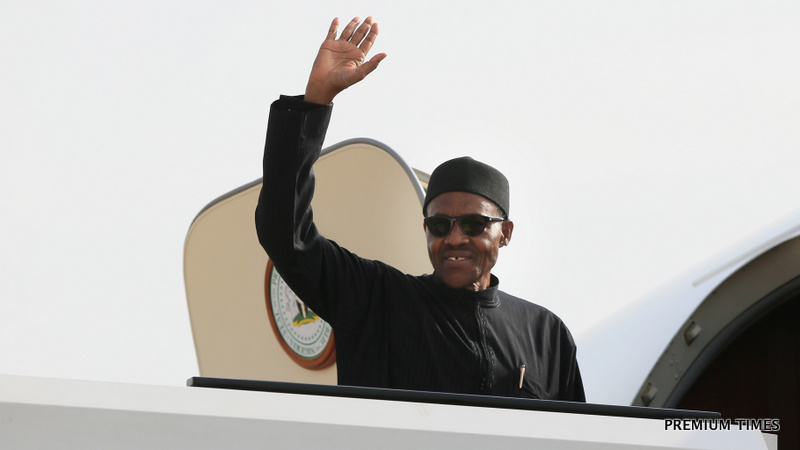Nigeria’s president was elected a year ago promising to tackle Boko Haram, corruption and a struggling economy. But real results have yet to materialise.
A year ago today Muhammadu Buhari was elected president of Nigeria, sparking street celebrations and jubilation from many of his countrymen. They saw in the tough-talking former general a leader capable of steering Africa’s most populous nation towards its much-vaunted potential.
Buhari, though a military dictator from 1983-85, enjoyed a reputation for integrity, incorruptibility and doggedness. So when he vowed to wage war on Nigeria’s mind-boggling corruption, many believed him. His military experience and no-nonsense demeanour lent credibility to his pledge to “crush” Boko Haram, the homegrown jihadi insurgent group that controlled significant chunks of Nigerian territory at the time of his election and was responsible for thousands of deaths.
Many Nigerians also believed Buhari would revive the country’s economy, which was reeling from the effects of a slump in the price of oil, Nigeria’s major export. A year later, does all the optimism surrounding Buhari’s victory seem justified?
Buhari can claim some success regarding Boko Haram. Nigeria’s military has been progressively pushing the jihadis from territories they once controlled, forcing them on the defensive. However, he has by no means “crushed” Boko Haram, which still maintains the capability to launch attacks on soft targets such as this month’s suicide bombing in a mosque, which killed 22 people. Women and children are still regularly being abducted by the group. The war against Boko Haram is therefore far from over, but Buhari deserves a B- for significantly weakening them in his time as commander-in-chief.
His anti-corruption efforts have led to the trial of Nigeria’s former national security adviser Sambo Dasuki, who denies having diverted over $2bn that was earmarked for fighting Boko Haram during the previous administration of Goodluck Jonathan. Several prominent figures have been linked to the case and face prosecution. Numerous investigations into other financial scandals have been opened. Buhari has also taken steps to clean house at the state-run oil firm, the Nigerian National Petroleum Corporation, a nest of corruption. Nigeria’s auditor general recently revealed that $16bn of oil revenue went missing in 2014 alone.
Buhari inherited an economy battered by weak oil prices, but his policies have made a bad situation worse
But for all the hoopla, Buhari’s anti-graft war has yet to yield any convictions. In fact, there is growing fear that with the help of clever lawyers, poorly prepared prosecution cases and potentially buyable judges, the culprits might ultimately go free or receive light prison sentences.
Additionally, critics accuse Buhari of being selective in fighting corruption, saying he targets politicians linked to the former government, while giving a pass to senior figures from his own party, the APC, which rarely has clean hands. This criticism is valid and underscores just how deep the rot is in Nigerian politics. Where practically everyone is, or has, been on the take, the prosecution of some and not others can always be viewed as a political witchhunt.
A recent scandal further diminished Buhari’s anti-graft credentials. The Nigerian president signed off a national budget loaded with dozens of questionable expenditures and some blatantly inflated figures. After a public outcry, Buhari admitted the incident was “embarrassing” and vowed to punish the officials who “padded” the budget, claiming ignorance of the controversial expenditures.
This suggests he is either not on top of things, or is willing to turn a blind eye to these problems in his own administration. Either way, it reflects poorly on his leadership. The Nigerian president thus gets an overall C for his anti-corruption efforts so far.
Buhari’s economic record is also wanting. It is true he inherited an economy battered by weak oil prices, but his policies have made a bad situation worse. He has been overly statist and interventionist, reacting to downward pressures on Nigeria’s currency, the naira, by imposing draconian foreign currency controls. His government has also banned the importation of dozens of items, from frozen chicken to ballpoint pens. This was supposed to encourage domestic production but the result so far has been soaring food prices, companies laying off workers as they suffer shortages of raw materials, rising inflation and GDP growth slowing to 2.1%.
Growing unemployment is particularly dangerous in a country that is experiencing a population boomand is projected to have over 206 million people by 2020, with 63% of the population under the age of 24. Buhari’s dogged character – a selling point in his presidential campaign – is now proving an impediment regarding the economy as he stubbornly refuses to adjust his policies to reality.Nigeria’s president gets an F for his economic performance so far.
Buhari still remains popular with many Nigerians, but his approval rating has dropped from 77% last August to 57% this February, reflecting the growing economic frustration. I was one of those who celebrated Buhari’s election last year. I still believe he is a genuine patriot who has the best of intentions for Nigeria. But good intentions don’t guarantee good policy.
Unfortunately, it is all too easy for Nigerian presidents to get disconnected from reality as they are usually surrounded by careerist sycophants who tell them their every idea is a stroke of pure genius. It seems increasingly clear that Buhari doesn’t have any clever answers to Nigeria’s current economic problems and it would thus be wise of him to seek advice from those who might have alternative solutions.
The wellbeing of Nigerians must be Buhari’s priority, not the satisfaction of his ideological instincts. He must be open-minded and act fast to kick-start the Nigerian economy. If not, the same crowds who celebrated his victory last year will cheer his loss at the next presidential elections in 2019 – me included.

